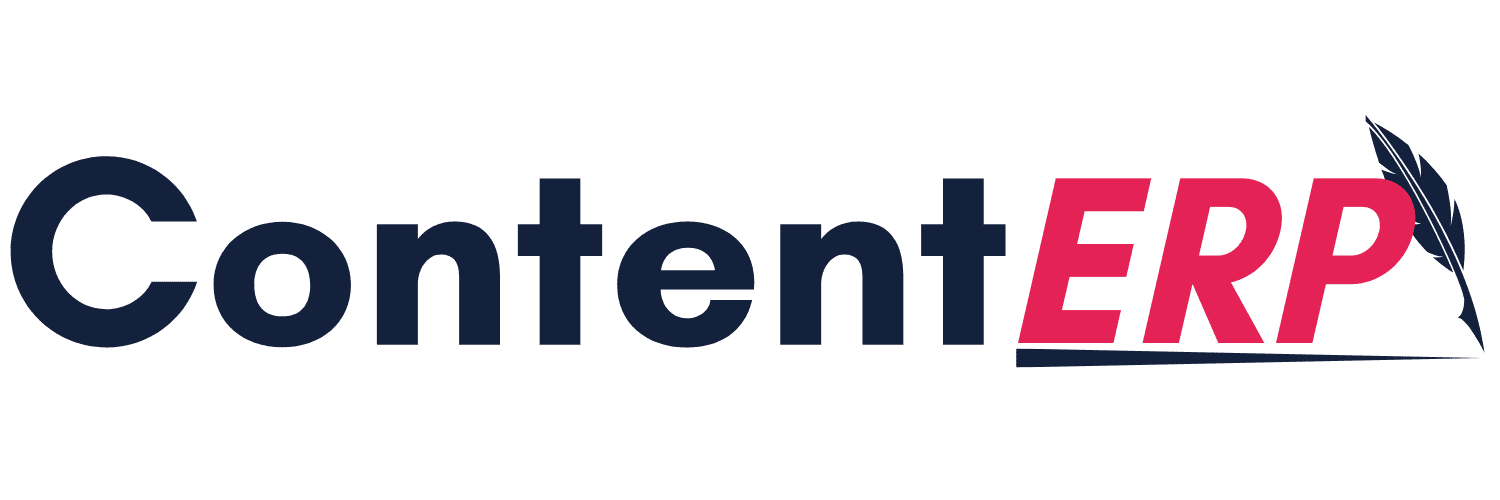What if every piece of content you created was not just an investment but a sure bet?
In the world of digital content, where words, images, and videos are often thrown into the vast ocean of the internet, hoping for a return can feel like gambling. Yet, businesses today can no longer afford to rely on mere luck when it comes to content marketing. Every piece of content represents time, money, and resources, and the question of ROI—return on investment—looms large over every content strategy. What if there was a way to not only measure that return but maximize it?
This is where ContentERP steps in. As the ultimate content management system (CMS) designed to streamline the production process, ContentERP doesn’t just help you manage content. It also equips you with the analytics tools needed to understand and optimize your content ROI, ensuring that every investment drives meaningful results.
Related: Avoid These 5 Content Mistakes to Stay on Google’s Good Side
 What is Content ROI and Why Does It Matter?
What is Content ROI and Why Does It Matter?
Before diving into the powerful tools that ContentERP offers, it’s essential to understand what content ROI means. In simple terms, content ROI is a measure of the revenue generated from a piece of content compared to the costs involved in creating it. ROI meaning isn’t just about dollars and cents—it’s about the value that your content brings, whether in the form of increased traffic, higher engagement, or ultimately, more conversions.
So, what is a good ROI? While there’s no one-size-fits-all answer, most businesses aim for a return of at least 5-10 times the cost of content production. However, a “good” ROI varies based on industry, goals, and the specific type of content being produced. For some, a steady rise in web traffic or higher social media engagement might be just as valuable as an immediate revenue bump.
How ContentERP Transforms the ROI Equation
To boost content ROI, businesses need to move beyond simply publishing content and hoping for results. ContentERP allows teams to manage, track, and analyze their content through a centralized platform—taking the guesswork out of the content production process.
1. Setting Clear Content Goals
ContentERP starts with the basics: setting content goals. Before any article, infographic, or video is created, it’s critical to understand its purpose. Is the goal to drive traffic to your site? Increase social media engagement? Generate leads? What is content marketing if not a strategic approach that aligns your content with your business goals?
With ContentERP’s goal-setting features, teams can align their content with measurable outcomes. This ensures that every piece of content is crafted with a clear purpose and measured against predefined metrics.
2. Optimizing for Maximum Impact
Content creation is not a “set it and forget it” endeavor. With ContentERP, businesses can continuously optimize their content for maximum impact. The platform’s robust SEO tools ensure that your content is search-engine friendly from the outset, increasing the chances of it being found by your target audience.
Through keyword tracking, businesses can see how well their content is ranking for relevant search terms and adjust accordingly. This is particularly important for evergreen content, which can continue driving traffic—and boosting ROI—months or even years after it’s first published.
3. Repurposing Content for Greater Efficiency
Another way ContentERP helps businesses maximize their content ROI is by facilitating content repurposing. Imagine you’ve invested in a 3,000-word blog post. Why not turn that into an infographic, a podcast, or a series of social media posts? ContentERP’s project management tools allow teams to repurpose content easily, stretching the value of each piece and multiplying its return.
By repurposing high-performing content into different formats, businesses can reach new audiences without the need to start from scratch—further boosting content ROI.
Real-World Example: How ContentERP Helped a Company Triple Its ROI
Consider the case of a small e-commerce company that was struggling to justify its content budget. With limited resources, the team needed to ensure that every dollar spent on content would deliver results. With the support of ContentERP’s centralized platform, the company increased its reach across multiple channels, ensuring that every piece of content was not only produced efficiently but also distributed to the right audiences at the right time. The platform’s advanced tools allowed the team to collaborate effortlessly, track progress in real-time, and make data-driven adjustments, ultimately leading to higher engagement rates and improved content ROI.
By optimizing content performance and simplifying workflows, the company transformed its content strategy into a powerhouse for driving business success. Using the platform’s analytics tools, the team identified that their audience was most engaged with blog posts that included listicles, news, and case studies. They then doubled down on this format, producing more content, which resulted in a 300% increase in lead generation and a threefold increase in content ROI. The ROI meaning shifted from mere cost recovery to a critical driver of business growth.
The Future of Content: Why ContentERP is the Key to Long-Term Success
In an age where content is king but attention spans are fleeting, businesses need more than good content to succeed—they need the right tools to measure and maximize its impact. With ContentERP, businesses can navigate the complex landscape of content marketing with confidence, knowing that every piece of content is working as hard as possible to deliver results.
By combining efficient team management, streamlined content creation, effortless promotion, seamless publishing, and content optimization in a single, user-friendly platform, ContentERP allows businesses to not only create good content but ensure it drives the kind of return on investment that justifies further investment.
Conclusion: The Power of Measurement
As the saying goes, “You can’t improve what you don’t measure.” In the world of content marketing, this is more than just a proverb—it’s a guiding principle. With the powerful analytics tools offered by ContentERP, businesses no longer have to rely on guesswork. They can track their content’s performance in real-time, optimize it for maximum impact, and ensure that every piece of content contributes to their bottom line.
Take the story of a tech startup that, after months of creating content without clear direction, decided to invest in a comprehensive content strategy. By using ContentERP to manage content and tweak their approach, they were able to turn their content from an expense into one of their most significant revenue drivers—proving that, with the right tools, content ROI is not just a goal, but a reality.
In the end, successful content marketing is less about volume and more about precision. As businesses continue to face growing demands for quality content, those equipped with the right tools—like ContentERP—will be the ones to thrive in an increasingly competitive landscape.
Related: Link-Building 101: The Foundation for Powerful SEO Results
